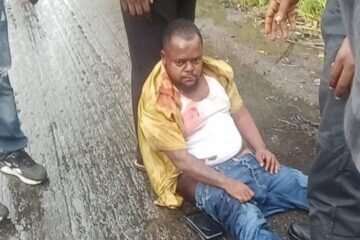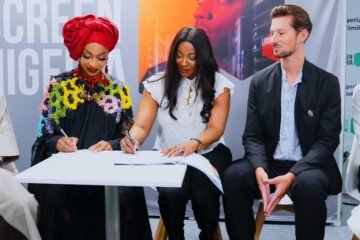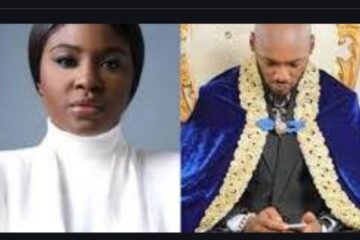Exclusive: How I started my Nigeria History Museum, Ikwuano son, CRIMMD Director, James
*Bemoans tiny display space, as he calls for help
Dr. Raphael James is the Director of the Centre for Research, Information and Media Development, (CRIMMD). CRIMMD is the pioneer of the Nigeria History Museum in Nigeria. He is a prominent son of Ikwuano. Based in Lagos, Dr. James has inarguably achieved milestones and is yet unyielding, hence he has so much up his sleeves to impact on the younger and unborn generations.
In this exclusive interview with Charity Uwakwe of Famousreporters.com, in his office at Idimu area of Lagos State, the proud Ikwuano son revealed that his motivation to establish what is currently described as the first and only renowned Nigeria History Museum in Nigerian is his quest to enable the younger and unborn generations have a sound knowledge of Nigeria’s history.
Dr. James further revealed that CRIMMD is the only Museum that has all Nigeria postage stamps produced in Nigeria beginning before and after the 1960’s up until date. According to him, Nigerian stories cannot be told to the younger generations without making self-explanatory references to items/objects that were in use in the past.
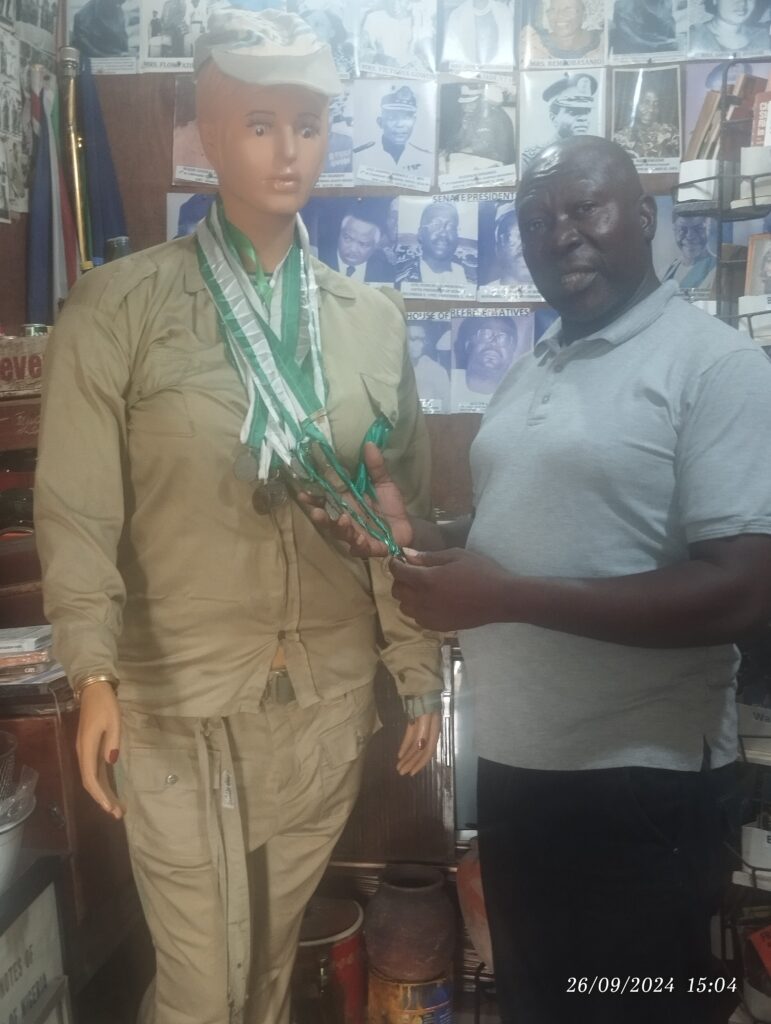


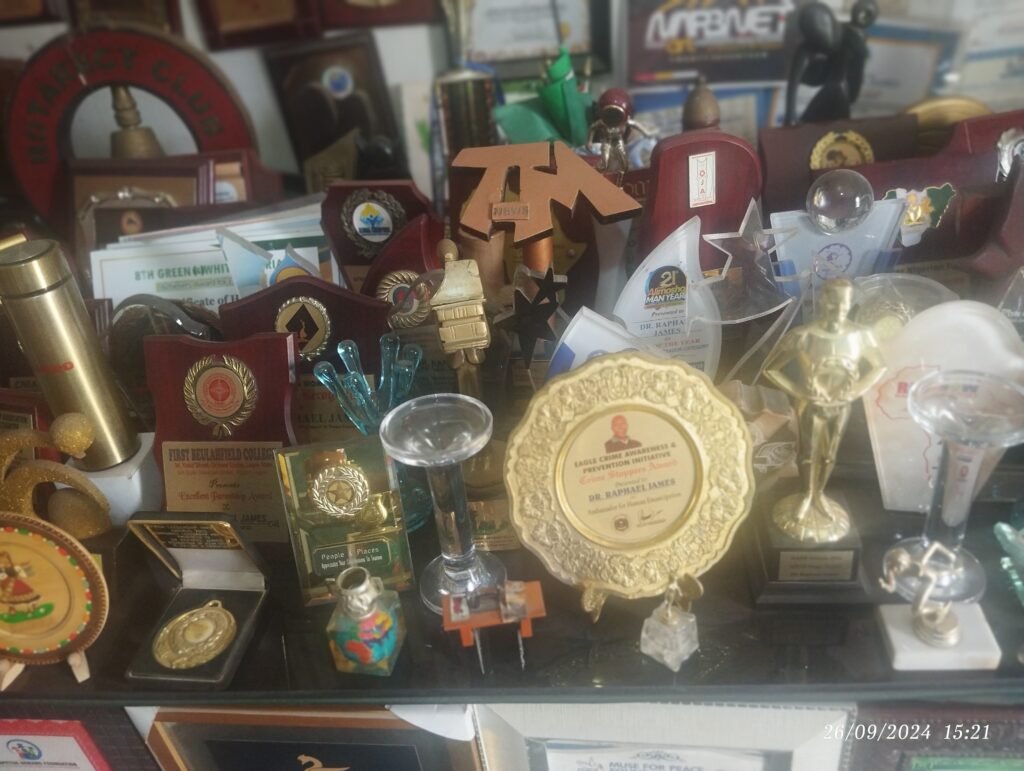
Excerpts:
Q: Sir for the purpose of this interview and the interest of our readers, kindly introduce yourself, please.
Resp: I am Dr. Raphael James. I work with the Centre for Research, Information and Media Development, CRIMMD for short and CRIMMD are the owners of the CRIMMD Museum of Nigeria History, the CRIMMD Free Public Library, the CRIMMD Skills Acquisition for Woman, and also CRIMMD is into publishing and publishes the National Biographer Magazine, The African Dame Magazine and D’Arts Magazine. I happen to be the Director-General of CRIMMD.
Q: Alright, sir. Please, kindly tell us how many years this museum has lasted for.
Resp: Okay, CRIMMD as a Centre is going to be twenty years by December this year, December 2004 to 2024, but the History Museum which is a part of CRIMMD came into limelight in 2012. We set up the museum in preparation for Nigerian @ 100, the centenary anniversary of 2014, so from 1912 till now we’ve been running the museum.

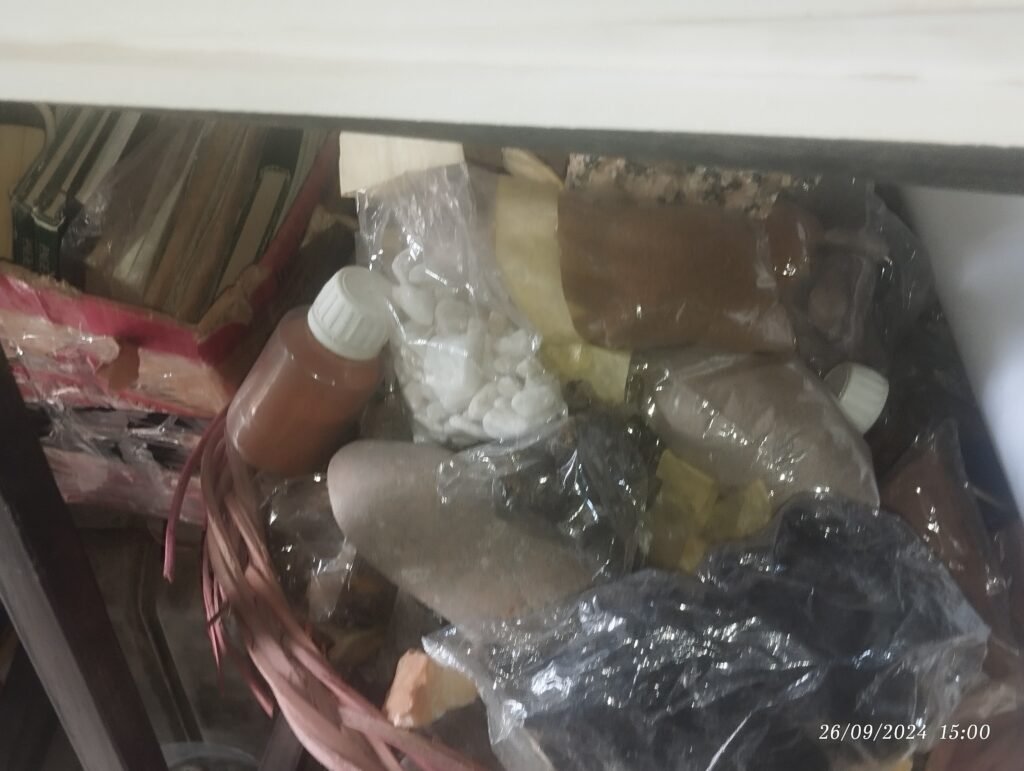

Q: So, could you tell us what motivated you to establish this?
Resp: I realise that Nigerians don’t really know their history. You want to ask me how did I get to realise that, because I have children, and they were asking me questions that I couldn’t really answer that had to do with the Nigerian History and I felt that if I can’t tell my children the real facts, I started wondering how will other people, other families do that. So, I started collating things and started asking myself questions while I was working on a book project that was to be used to mark Nigeria at hundred.
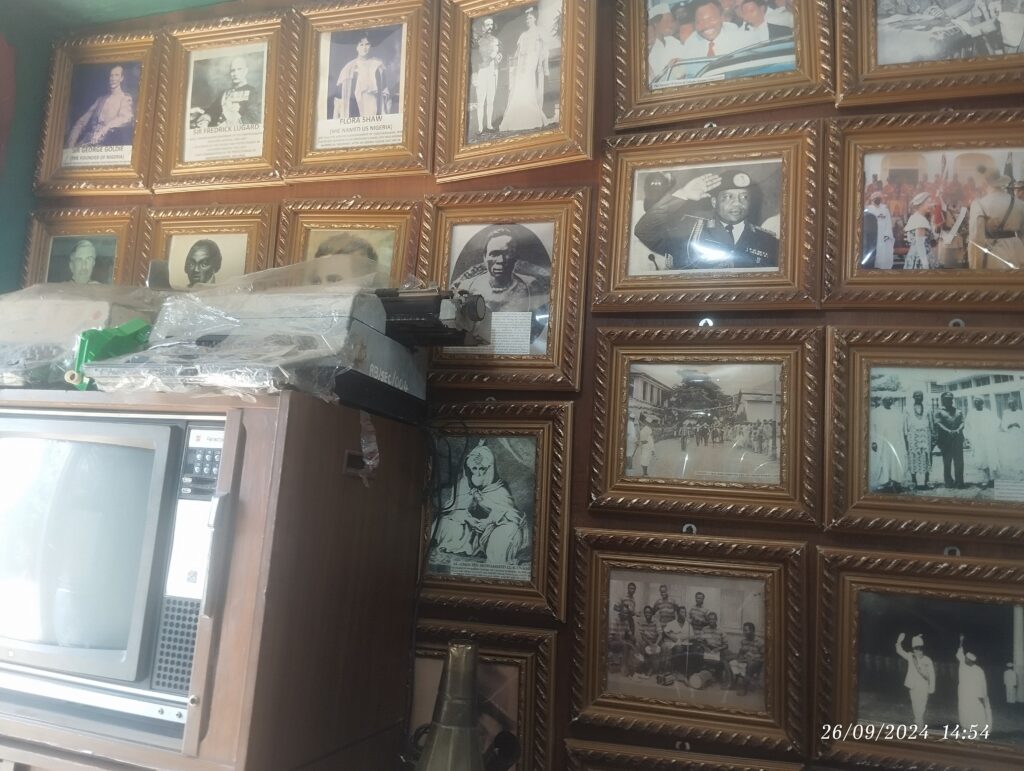

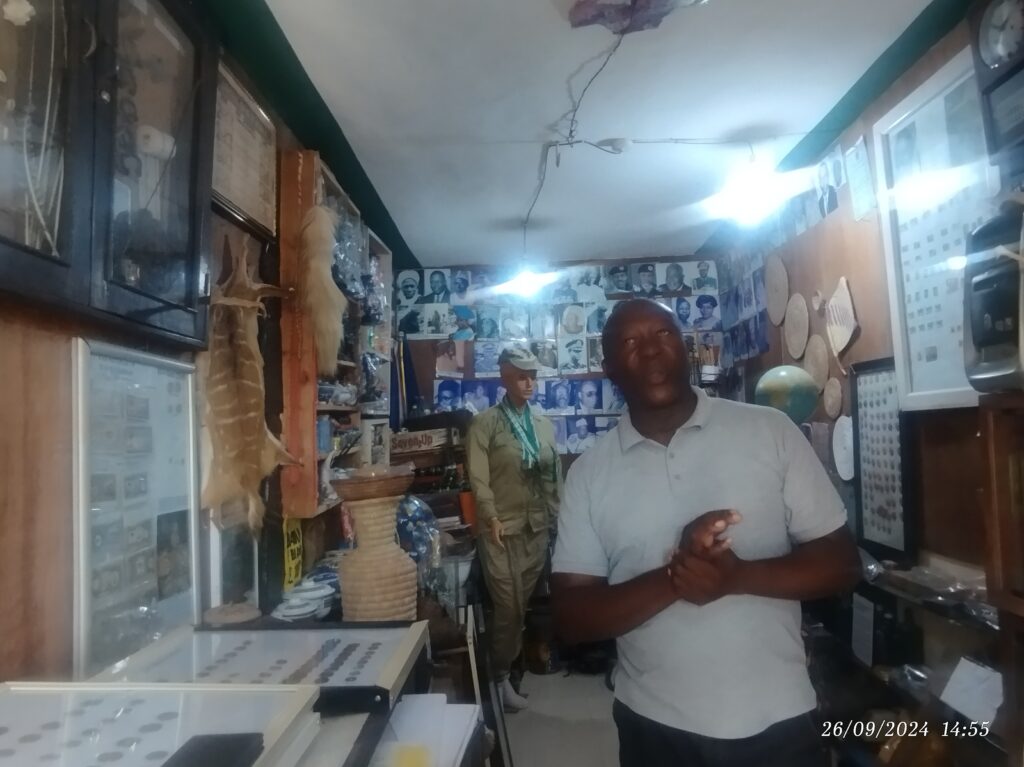
Q: What was the book titled?
Resp: ‘Nigeria at Hundred’ was actually the title of the book. Nigeria at Hundred covers events of everything that happened in Nigeria, My idea was to look at it from 1900 to the period of time when I was working on the book which was 2014. So, I started collating information and photographs. In the course of gathering photographs, I discovered I had quite a lot of photographs and all those photographs couldn’t go into the book, so the question I asked myself was; what do I do with the pictures? And that was when the idea of starting a museum started. Originally, what I wanted to run was just a photo museum, so the only thing you would’ve been seeing here would have been photographs, so I started collating photographs, by the time I did my first 5000 photographs,I had a challenge, my computer crashed and I lost the entire 5000 photographs. So, I had to start all over again.

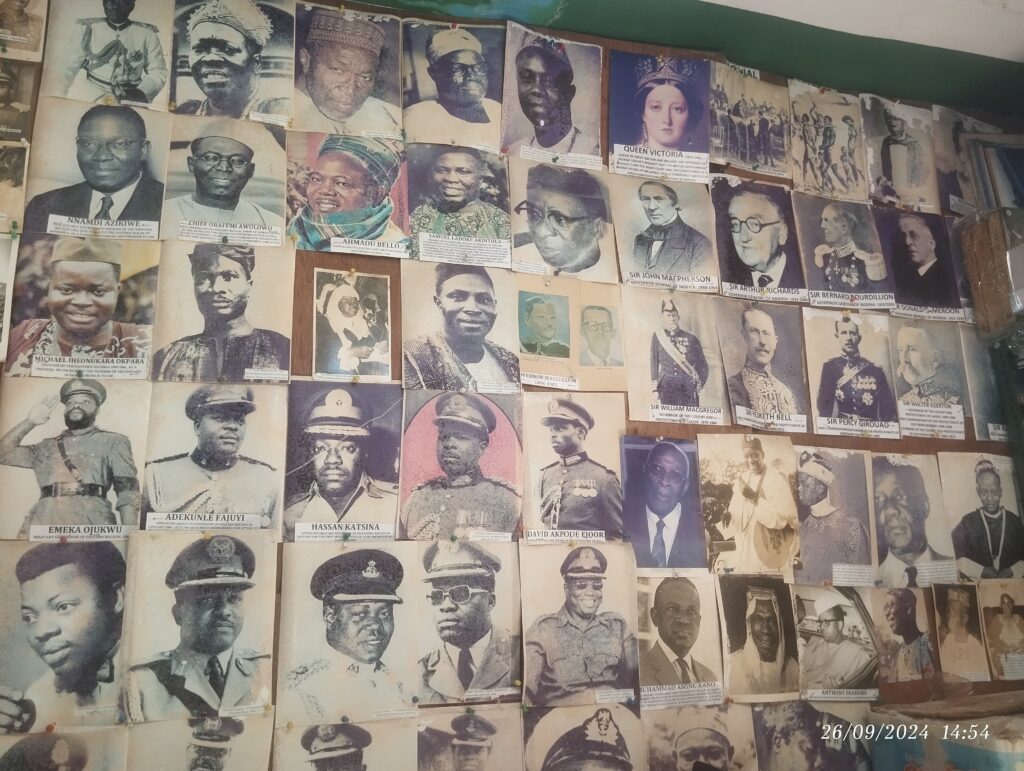
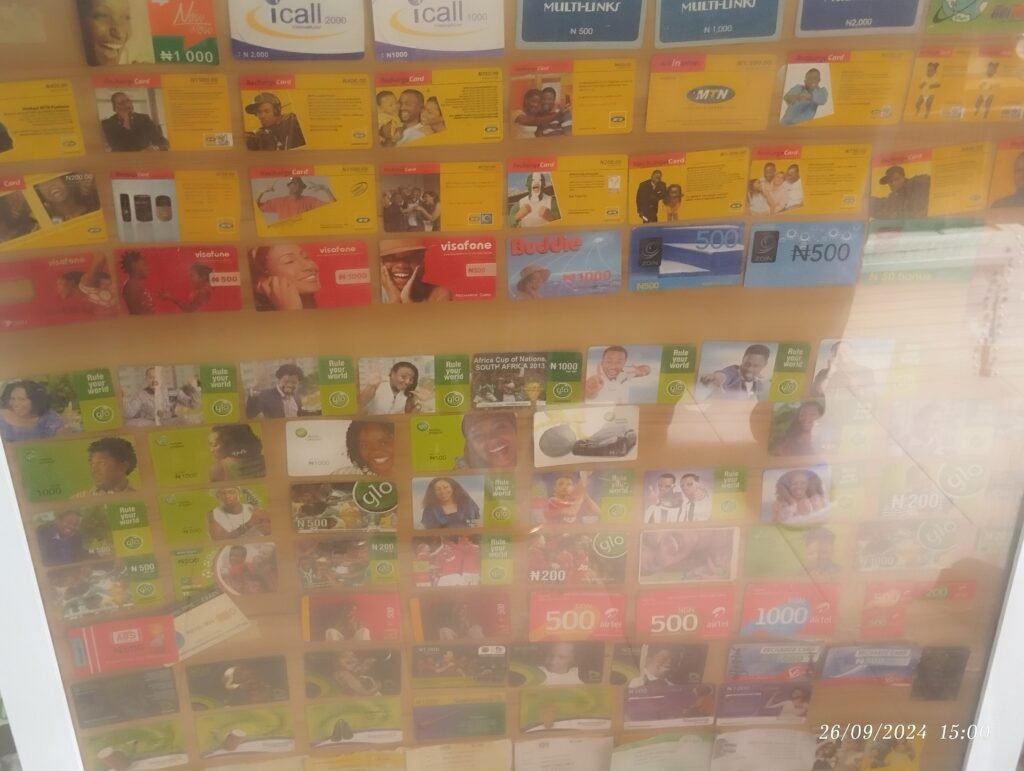
Q: How did you feel then?
Resp: Horrible, I felt bad and discouraged. I actually wanted to stop but something inside of me kept saying you can’t give up now; this is the time for you to go more and do more. So, I started all over again, searching for more photographs, travelling across the country, taking pictures, reshooting photographs from old newspapers and old magazines, and by the time I realised it, in fact, as I talk to you today I have over 40,000 photographs that are telling Nigerian stories. Then, I started looking for things that can bring back our memories; you know things that were used over the years that can actually be used to tell our stories. For example, the Museum has things that are segmented. I have magazines and newspapers dating as far back as the 1920’s. I have over 90% of magazines that have been published in Nigeria from 1980. I have history books on Nigerian history, and in addition, I have a collection of biographies. I think so far, we have close to 400 biographies of prominent Nigerians that are with us. We have a collection of African literature series back from the 60’s and 70’s and 80’s in our midst. And, then in terms of what we have as artifacts, for example, we have Nigerian postage stamps, we have all the postage stamps that Nigeria has produced from 1960 till date, and some that were produced before 1960, we have Nigerian currencies from 1910 till date. All Nigerian currencies both Bank notes and coins are visibly here. You can actually see some of the coins here; we have pre amalgamation coins, the coins that were produced before the 1914 amalgamation, like that we have them in different sets. For instance, we have 1963 to 1971 sets. All the coins that Nigeria has produced we have all of them back to back. Therefore, when I say back to back, I mean coins that were produced over the years too we make a collection of that. Then, other items that were used as currency during trade by barter are equally here. We have shells, we have cowries, we have feathers, we have beads, we have different shapes of manila. Manila were used as currencies, sardine, mirror, tobacco money, all these things were used as means of exchange long before coins and banknotes were introduced. Now, we have some other crazy things that we collected. For example, we collect old wristwatches, you know, to tell the stories, people come here and they see the kind of wristwatches they used over the years, and over here we have bottle-openers, combs, biros and pencils. For us, anything at all that had been in use at one time or the other is what we put in together to tell our stories, because I mean you can’t tell Nigerian stories without telling the younger ones the things that were used before now.We have a board that represents electricity, so most of the things that were used for electricity like old meters and other parts of electrical items we have them on display.
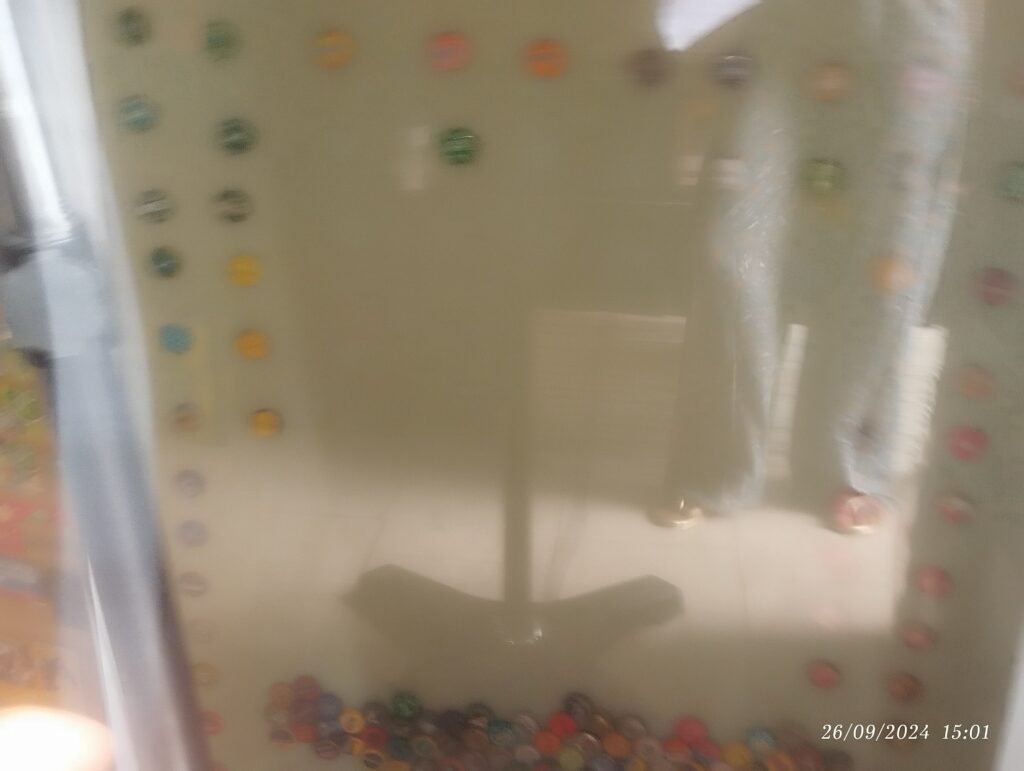



Q. So, sir, do you mean to say that what motivated you to delve into this was your quest to be able to tell the younger and unborn generations what items were in use before their emergence on earth, please?
Resp: Yes, of course, please. The essence of keeping all these things is to tell our stories and also in order for them to be able to view things that we have used. We have about 52 samples of minerals resources we got from across Nigeria, the major items that are not this collection are diamond and gold, and we didn’t put them there for security reasons. We have samples of the telecommunication recharge cards that we’ve used, that are no longer in circulation, nobody is using them again, so we keep all these, we have cups and drinks that were used, we have different sets of telephones, sound systems that has been used over the years.I think we should have close to 50 different types of phones and cell phones here that were used.We have different types of stoves, that were used in the olden days, different types of clocks, for us it’s anything at all.
Q. But, sir, some of these stoves were also used when people like me when we were in secondary school. So?
Resp: Yes some of them still exist quite alright, but if we don’t keep them today, by tomorrow we might not even have access to them.For example, take a look at this 1972 KDK fan, it’s still working.
Q: Really? But, sir, I think this fan could be older than you, right?
Resp: (Giggles…) No, it’s not older than I am, rather I’m much more older than the fan.Q: Alright, sir, so, having your postage stamps makes your museum outstanding amongst other museums in Nigeria.Resp: Yes, so far, we are the only museum in Nigeria collecting postage stamps, just as we are the only museum in Nigeria collecting bottles. We collect bottles.




Q: And where are the bottles, please?
Resp: Okay, you can come over here, we have the bottles in crates, that’s the first 7up crate in Nigeria, that’s the first Coca-Cola crate 1952, these things are quite unique, they are things you don’t get to see everywhere that you go, but we put them together to tell Nigerians stories.Q: So, can you share your feeling about your achievements so far?
Resp: I don’t think I’ve actually achieved a lot if you ask me and I want to be sincere, I’m not being ungrateful to God, my creator but I just feel I need to do something for my country.I want to leave an impact so when I’m gone people could actually look back and say okay there was a man who came and he did this and he left this behind, that is what I’m trying to achieve. Now, you can see different lanterns that have been used, old medals, I’m actually buying these medals from some of our old soldiers and the rest, so these are medals.
Q: Like how much does each cost?
Resp: Ehhhm… There are different prices and unfortunately I don’t even discuss how much I spent in buying these things. These are meritorious medals, like this one is an Armed Forces of Nigeria medal, some of them are medals that were given after the civil war to heroes of the civil war, because most of those people just feel they don’t even value this thing again they rather need funds. So, in exchange, I tell them rather than throw them away or discard them where people cannot get to see them, let’s get them and put them in the museum for posterity sake. That’s what we are doing.Now we don’t only do Nigerian stamps, we also have, here for example this is a collection of Biafran postage stamps, Biafra was a country that was within Nigeria which was formed from Eastern Nigeria.
Q: Did you say it was or is? Why did you use the verb “was”?
Resp: Because there’s no Biafra again. Biafra ceased to exist in 1970 when it was called off and returned back to Nigeria, so these used to be their postage stamps. And behind you, you can actually see their currency also, that’s the Biafran currency on display, their bank notes, their coins and this was the Governor of Central Bank of Biafra. So, these are the kind of unique things you get to see in our museum that you probably will not get to see in other museums, because we are the pioneer history museum in Nigeria. We also have videos in our audio-visual section, we have old records, these are old music, we have close to 200,000 of them.
Q: How do you feel seeing all of these things; you’re alive and people are coming here to celebrate what you’ve achieved so far? Although to you, it’s just not an achievement, but to others, it’s a milestone.
Resp: Exactly, for now, as much as I’m happy that I’m documenting these things, I must also say that I’m not really that happy because I don’t have the space I’m looking for to display them. Imagine now that you walked in and I’m talking about the old record and I’m playing the music for you to feel, there would have been a difference.
Q: Sir, are all of these songs still functional, can they be played already?
Resp: (…smiles as he makes for the old stereo and slots an interesting music). Yes, I can play one for you while you are here so you can actually feel the music.
Q: And the map of Nigeria over there, sir?Resp: Yes, that’s the Map of Nigeria designed with postage stamps. We were just trying to use postage stamps to tell the story of Nigeria.My dream is someday we could get a whole building so we can actually put on display the things we have. Take for instance, the music you just listened to is supposed to have a section in the museum on Nigerian music so you’ll walk in, you pick up a particular artist and we play the record for you because we have almost all the artists in place. We also have video clips, a whole lot of video clips.In fact, I have Lord Frederick Lugard’s last interview with the BBC. We have it on a clip and these are the kind of things that we would have loved to play to everyone who visits us in the museum if our place was properly set and we had the audio visual session where you can actually walk in and see and feel these things, but presently space has been our biggest challenge. And for every opportunity, I have like now, I just keep calling on good Nigerians, don’t look at the museum as my museum, it’s no longer my museum it’s now a Nigerian museum and we have to propagate it very well to tell our story.



Q: Okay sir, so now may we digress a little bit. We observed that you’re also a media practitioner, and then you publish the National Biographer magazine, so far in the industry what has been your greatest achievement as a journalist and what year did it come to being?
Resp: I’m not sure if I’ve had a greatest achievement, but I know I’ve had interesting interviews. I’ve interviewed about 7 World presidents so far, and had interactions with families of about 14 presidents without really getting in touch with the president across the world so far. I’ve done some very unique interviews and a very crazy research work. Most of the time, I describe myself more as a researcher than a Journalist because I don’t do what you want to describe as the kind of daily Journalism that everybody does; I go the extra mile to dig out information, the kind of thing you want to describe as an investigative journalism but even with my investigative journalism, I am not out to spoil anybody’s image. I look more at historical facts and try to collect them, I’m gonna share an example with you. When I interviewed Pa Taiwo Akinkumi I wanted to find out the unique thing about the flag, how he got into designing the flag and what was the current situation, what were the uses of the flag, so I travelled down to Ibadan and I had an awesome time with him and I thank God that I did that because even when he’s gone, a lot of people are reaching out to me to get the information of Taiwo Akinkumi based on my interview with him.
Q: Could you, please, kindly share with us what your most feared challenge has been so far?
Resp: What has been my challenge? My challenge is the same challenge that Journalist are facing everyday. One, journalism is not actually paying as some of the big business industries are doing but once you have a focus, I think I have a focus with my publication, I am doing well, I must say I’m doing well so far.However, basically, my challenge should be funding, because the kind of journalism I’m doing is a whole lot of funds for printing, so funding I’ll say has been a challenge.
Q: Back to the Museum, so are you actually calling out to the federal government or well meaning Nigerians to help you in setting up a bigger museum?




Resp: Yes, I’m actually reaching out to more individuals than to the government. I’m sorry to say that but the point is that the government is very busy doing a whole lot of things, and I know there are individuals out there who really appreciate unique work like we’re doing. And one thing I’ve always told people that don’t just give me the funds, come and see what I’m doing. If you’re not convinced then don’t bother to support us but I’m sure every other person who has entered here has been glad with what we’re doing.
Q: So considering the current economic situation in Nigeria, how do you feel about it and what do you think should be done to liberate the faith of the people, especially journalists of course, even when the economy was okay, journalists were still not being considered for support by the government. What do you think should be done?
Resp: I don’t have any advice for the government on how to run their policies and run the government. It’s the government thing for those who are there. However, for those of us in the private sector we are doing all we can to sustain ourselves and survive. For example, when the government says they are giving out minimum wages, you know the minimum wages is just for ministry workers and not for those of us in the private sector but the government should try. Those who are holding political power rather should try to make the atmosphere conducive for Nigerians. Things are rough, things are hard, there’s no funds out there no matter how intelligent or hardworking you are, you discover that everything you’re putting in is not bringing in enough money to sustain your family and everybody is crying and feeling the pain. I am one of those who are feeling the pain.
Q: So any appeal to the government on behalf of Journalists in the country who are not left out of this devastating predicament?Resp: Government should reach out and help all of us as journalists.
The End!


